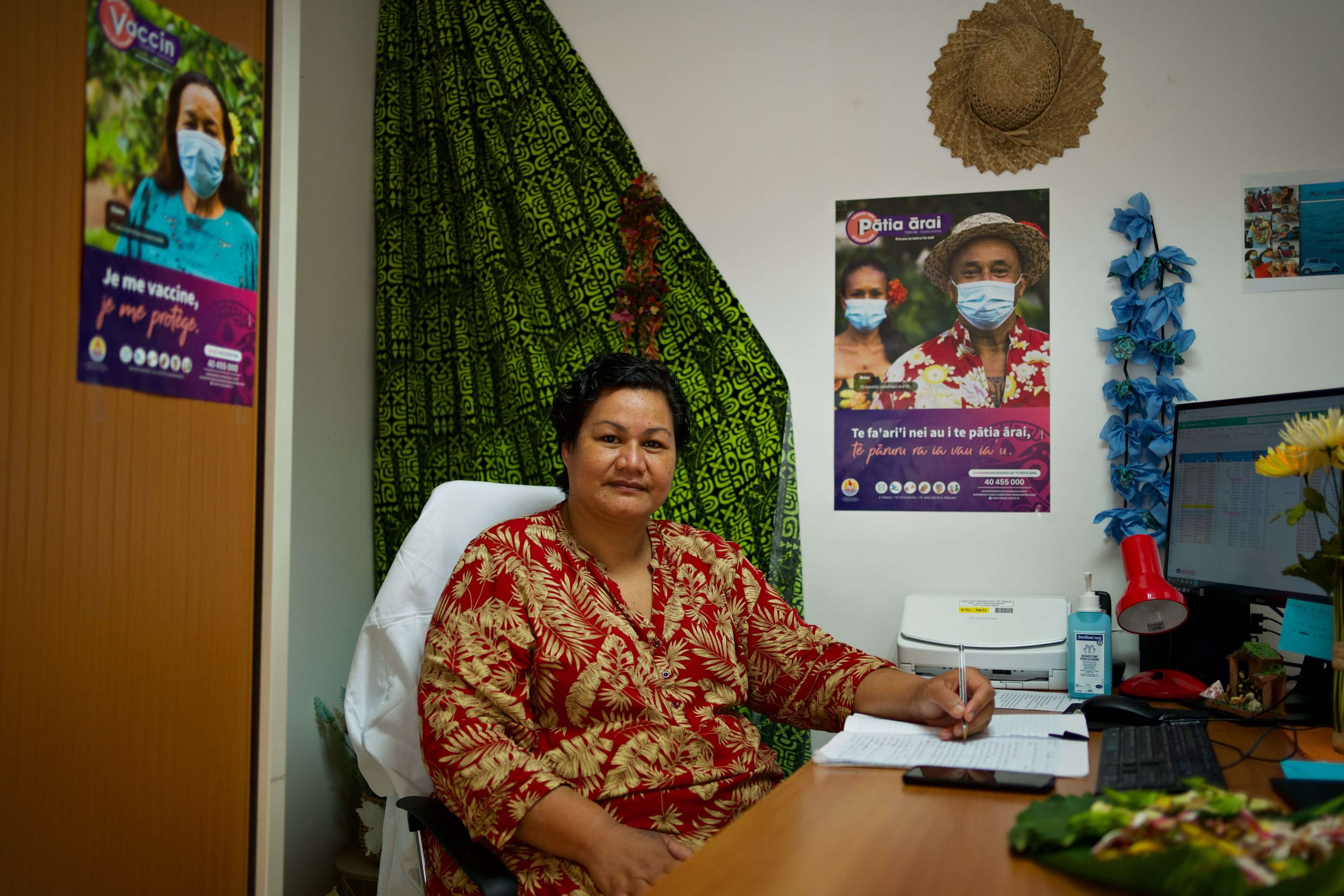As coronavirus began spreading around the world in early 2020, even the far-flung islands of French Polynesia were affected. The first case of COVID-19 was recorded in Tahiti on 10 March 2020, after politician Maina Sage returned from Paris and was diagnosed with the Sars-Cov-2 coronavirus. Local authorities swung into action with a series of measures that month, banning cruise ship visits, restricting inter-island flights, closing schools and introducing a lockdown.
The government of French Polynesia led by President Edouard Fritch also moved to strengthen the health team to respond to the crisis. Nurse Adelaide Tamaku joined the ‘Cellule de crise COVID-19 de Polynésie française’, a specialist team in the Health department, dedicated to COVID response.
“In March 2020, I was seconded by the Health department to strengthen the health surveillance team,” Tamaku explained. “We were responsible for organising care for COVID-positive patients, but also to conduct contact tracing. Above all, our work involved psychological support. The idea of being COVID-positive was really scary for some, especially those who may have infected their loved ones. We called them regularly, and had to be vigilant for any serious signs, like temperature rises or respiratory problems.”
By late March, the early cases were under control, and Tamaku was redeployed to community education programs. In Tahiti, there were very few cases between April and June 2020. During that period, she went out into the community, to raise awareness of the importance of masks and physical distancing in public places.
On 14 June 2020, the specialist COVID unit finished its work – or so they thought. Like many island nations, border closures hit the tourism sector and there was pressure to welcome overseas travellers again, from Tahitians trapped in France to tourists from Europe and the United States. After a decision by the French State to re-open its borders, French Polynesia welcomed overseas travellers in mid-July 2020.
Tamaku was mobilised again to advise travellers arriving from overseas about safety protocols and quarantine.
“From mid-July to September last year, I returned to the health unit after the opening of the Polynesian sky to tourists,” she said. “I was put on the phone to answer many questions. Where do I get tested? What to do when the family comes back from abroad or from France? In August, we set up a health prevention brigade to go to the communes [local municipalities]. Our strategy: to train contact people at local level with guides to inform and educate the population about masks, distancing, health protocols and more.”
Opening up brought new pressure on health workers. From August last year until February 2021, a first wave of COVID-19 swept over the main islands of Tahiti and Moorea, and soon reached the outer islands. Spread across five million square kilometres of Exclusive Economic Zone, the outlying archipelagos of French Polynesia have less medical support than the capital.
“When the crisis started, my fear was about an explosion of cases in our islands, which stretch over an area as large as Europe,” said Tamaku. “But ultimately the islands looked after themselves. When school children returned to outer islands like Rapa in the Austral islands for the Christmas holidays, the community organised a fortnight’s quarantine. It was the community spirit of the islands that prevailed.”
Throughout this year, the emphasis has shifted again, to vaccination. Since January 2021, 67% of the population aged 12 and above have been vaccinated. For Tamaku, sharing information about vaccines and countering vaccine misinformation and hesitancy is a key task. But she notes: “Today, many Polynesians want to be vaccinated, because people want to travel, they want to live again.”
This article is part of our special feature on Pacific health systems in the latest issue of Islands Business. Log in to your account or subscribe to read more.

One Comment “WHO: Pacific islands facing a bumpy road toward the ‘Healthy Islands’ vision”
Comments are closed.